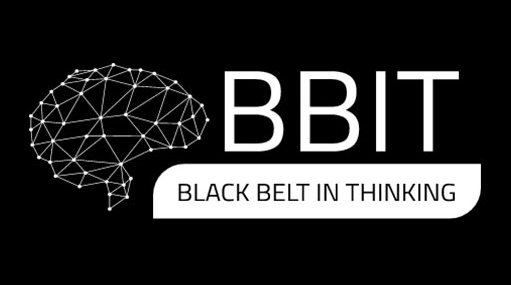Critical Thinking is an act of considering whether something makes logical sense. A bit more technically, Critical Thinking is thinking critically and being critical of the logic of a situation or an argument. This description isn’t very helpful without further breaking it down. So, here goes…
Critical, critics, critique; we know this term from modern use. However, the general meaning can be misleading here. Critics are usually associated with movie reviews, or perhaps a negative outlook on something, but there is no negative intent in being critical. Critical thinking was in fact seen as a positive thing by the Greek philosophers who first turned their minds to it.
To be critical of something is to seek to understand it more. An inquisitive mind might physically take apart an engine to understand how it works. It may also mentally take apart an argument or statement to understand how it works. The same mind that would then go on to physically examine the engine to improve it would do the same with the argument; rewording or testing the argument to either improve the logic or to identify the flaws.
Argument is used a lot as a term when discussing logic, it doesn’t imply aggression, just that you are putting forward a statement about something.
For example, you might argue that the leaky hose is caused by the sun eroding the plastic of the attachment. To then apply critical thinking to this would be to consider if that seems logical. It might sound like a reasonable argument without context, however, if we know that you have a dog that chews the attachment, we may suspect it is the dog that has caused the damage. To take it another step, the sun may have weakened the plastic, making it brittle enough for the dog to break. Sounds awfully pedantic for a hose, who cares?
It is useful to know the cause of the failure so you can avoid it in future. Whether you need
- a brass attachment,
- putting the hose away out of the sun, or
- putting the hose out of the dog’s reach
all depends on the reason for the broken hose.
This line of questioning may seem an overkill when it comes to the hose, but the formula is the same no matter the size or importance of the problem. The skill of critical thinking improves through practice like any other skill.
The purpose is not to witch hunt the person making a claim, the purpose is to scrutinise arguments and situations from what they first appear, and most importantly to do this impartially.
Where did it come from?
Socrates was the first to explore the concept of critical thinking, by means of ‘Socratic Questioning’. This was in contrast to the notion of the day that people in authority were correct, and many concepts were explained with mythical back stories. It is hard to be certain about how much of todays Critical Thinking Concepts relate to Socrates due to many conflicting details about his life, and the fact Socrates did not write any of his thoughts or concepts down. The ideas were recorded and expanded by his student Plato, then further expanded by Plato’s student Aristotle. And from there, many thousands of individuals over the last 2,500 years.
You can start your journey down the wiki rabbit hole here: Socrates
What is it not?
The term critical thinking has been corrupted somewhat by those using it to attack or refuse to accept things they don’t like. While critical thinking is grounded in being sceptical (the philosophers mentioned above sometimes grouped as the sceptics) the essential element is that a logical argument is considered. This should be as free from bias or opinion as possible, focusing instead on what has been proven, or what is most likely to be true, given the information available.
Why is Critical Thinking important?
When we think of someone’s ability to consider information from various sources, process that information, ask intelligent questions, and come to clear conclusions, we are referring to that person’s ability to think critically. Critical thinking in turn leads to solving problems, making decisions, and taking effective actions.
In this day and age, Critical Thinking skills are more important than ever. We have so much information available to us that understanding this information, and making sense of it, is critical! Very little of the info we get is just fact, most has a spin on it, either from the bias of the person sharing the information, or in some cases a malicious intent to misinform.
Check out our upcoming article: How to be a better Critical Thinker.

